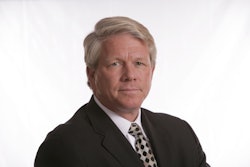Ribbon-cutting congressman and special interests linked to collapsing transportation infrastructure in new report.
By John Latta
Instead of “build baby build”, a public interest group argues that America needs a “fix baby fix” attitude towards our transportation infrastructure. Maintenance and repair of existing roads must be given priority over building new roads says the group in a new report.
The report, Road Work Ahead, is from the Education Fund of U.S. PIRG* and actually calls for a “fix it first” policy to be the dominant guiding philosophy in Washington and every state capital.
“Across the nation, drivers face more than 90,000 miles of crumbling highways and more than 70,000 structurally deficient bridges,” says the report. “Neglected maintenance of roads and bridges acts as a constant drain on our economy and a scourge on the quality of life.”
The report asks “Why are America’s roads and bridges in such terrible shape, and who or what is to blame?”
Members of congress who love nothing more than ribbon cutting and special interest groups absorb most of the blame for policies that prefer building new roads over maintaining existing ones in the report.
“One thing is for sure, the deterioration of our roads and bridges is not an accident. Rather it is the direct result of countless policy decisions that put other consideration ahead of the pressing need to preserve our investment in the highway system. Political forces often undermine a strong commitment to maintenance.
“Members of Congress, state legislators and local politicians thrive on ribbon cuttings. Powerful special interests push for new and bigger highways. Meanwhile, federal and state policies – which should provide strong guidance in the wise use of taxpayer dollars – often fail to achieve the proper balance between building new infrastructure and taking care of what we have already built.
“To fix our roads and bridges, America first must fix our transportation policies. To counteract the tendencies to neglect repair and maintenance, we must adopt strong “fix it first” rules that give priority to maintenance of our existing roads and bridges, set national goals for the condition of our transportation system, and hold state governments accountable for achieving results.”
A basic charge in the report is that “special interest pressure tilts the playing field toward the construction of new and ever-wider highways at the expense of repair and maintenance.” But special interests do not get all of PIRG’s blame. “Congressional earmarks – in which members of Congress designate funding for special projects – further tilt spending away from maintenance.” PIRG does not stop there: “State transportation funding policies are often similarly short-sighted, focusing on the creation of politically popular new highways rather than maintaining existing roads and bridges.”
The report also faults Washington, claiming the federal government is derelict in its oversight of funds sent to states. “Responsibility for the road and bridge crisis begins at the top, with federal transportation policies that allocate vast amounts of money to the states with little direction and no accountability.”
The PIRG report delivers a series of specific recommendations to help create what it calls “a top-to-bottom shift in funding priorities and policies,” including:
Prioritize highway and bridge maintenance and repair.
States should be held accountable for properly maintaining roads and bridges, and should be required to demonstrate progress to the public according to specific, measurable benchmarks.
Reorganize federal highway programs to focus exclusively on either maintenance or new construction.
One program should cover all new infrastructure construction, ensuring that new highway or bridge projects undergo rigorous evaluation and prioritization at the federal level —much like the New Starts program for public transportation projects. Another program should consolidate infrastructure preservation efforts to better dedicate resources to repair and maintenance.
Require states receiving federal aid to plan for future maintenance before building new roads.
States receiving federal transportation funds should calculate and publicly report the 10-, 20- and 50-year maintenance costs of all new or improved infrastructure projects and demonstrate that such funds will be available over the lifespan of the infrastructure. Such requirements are commonplace in state applications for federal transit investments.
Measure performance the right way.
The federal government should establish performance measures connected to national goals that drive investment decisions, such as increasing the fraction of roads in good condition or reducing the number of vehicles traveling over structurally deficient bridges. States should report progress to the public annually.
Reward states for good performance on national objectives.
States already receive bond ratings for how well they act to meet future obligations to investors who buy their assets. By that same principle, the U.S. Department of Transportation could develop a system to rate states based on their progress, or lack thereof, on preventive maintenance, deferred maintenance, and resources dedicated to repair. States with unsatisfactory ratings would be prohibited from transferring funds out of federal repair programs for other purposes, and would risk losing their full federal funding over time.
States, too, should create “fix it first” policies.
Every state should adopt “fix it first” policies analogous to those in Maryland, New Jersey and Illinois, requiring state DOTs to focus on the rehabilitation of existing facilities before building new highways. v
* Editor’s note:
How PIRG describes itself
U.S. PIRG, the federation of state Public Interest Research Groups (PIRGs), stands up to powerful special interests on behalf of the American public, working to win concrete results for our health and our well-being. With a strong network of researchers, advocates, organizers and students in state capitols across the country, we take on the special interests on issues, such as product safety, political corruption, prescription drugs and voting rights, where these interests stand in the way of reform and progress.
How PIRG describes its Education Fund
With public debate around important issues often dominated by special interests pursuing their own narrow agendas, U.S. PIRG Education Fund offers an independent voice that works on behalf of the public interest. U.S. PIRG Education Fund, a 501(c)(3) organization, works to protect consumers and promote good government. We investigate problems, craft solutions, educate the public, and offer Americans meaningful opportunities for civic participation.











